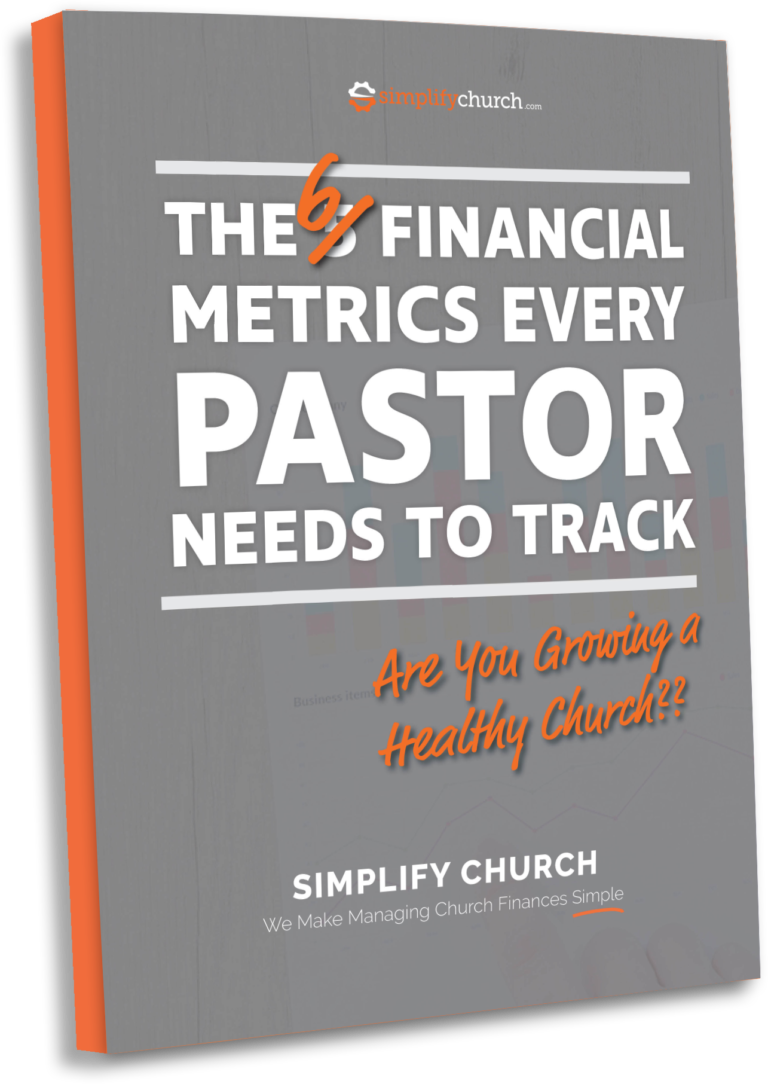If you are the pastor of a small church, you probably already know that there is a limit to what one staff member can accomplish for a church (at least without eventually burning out).
You’ve realized that there is a finite amount of time, but more tasks that need to be accomplished than can fit into that finite amount of time. Eventually there will come a point – if it hasn’t already – where you will need to consider whether to bring on additional help.
Many small churches and church plants will first try to make do with volunteer staff, but there are additional challenges that come with relying on volunteer staff for key ministry functions.
If you truly want to be a church that flourishes and experiences long-term health and impact, you will at some point need to invest in paid help. But before you bring on an additional paid staff member, there are a few things you need to consider:
1. Make sure you hire a church staff member for the right reasons
Hiring that first employee is something that needs to be done with some forethought.
I’ve met several pastors that hired their first employee and in hindsight realized they did it for the wrong reasons. Yes, there probably was more work than one person could handle, but their motivation for hiring someone was really the belief that hiring an employee would mean that the church plant had somehow now “made it”.
In reality, when not done right, hiring that first employee can actually be a detriment to the church. After all, there are a whole new set of responsibilities and requirements that need to be considered once your church is designated an employer (more on this in a moment).
2. Make sure you hire the right church staff person for the right role
I’m sure you already know this, but never hire someone simply because you are desperate, and they are available. Conversely, don’t hire someone just because they are a good friend or a “good person”.
In the words of Jim Collins, “Leaders of companies that go from good to great start with getting the right people on the bus…and the right people in the right seats.”
The same is true for your church. If someone is not the right fit for the church or for a specific position, it can cause a great deal of harm. Before you hire someone, first think through the needs of the church. Then consider your responsibilities, giftings and skillset. Ask yourself:
- What is currently missing/lacking?
- What responsibilities should I offload?
- Could I effectively solve these problem areas with volunteer help or by outsourcing? Or should I bring someone on in a paid capacity?
- What are my areas of weakness and how could an additional staff person offset this?
If you determine that your church would be best served by an additional paid staff person, consider what characteristics would complement your gifts and personality traits. For example, if you are a visionary/dreamer, consider bringing on someone who is more detailed-oriented and gifted at turning dreams into executable plans.
3. Recognize that you will now also be a boss
Chances are you went into ministry because your life was changed by the gospel. You expected that life in ministry would involve preaching the word, discipling and encouraging others in their faith, and spreading the message of Jesus with your community.
My guess is that you didn’t go into ministry with the expectation that you would be operating the equivalent of a small business. And yet, as a church grows, the administrative responsibilities increase as well. Being a lead pastor involves not just shepherding people, but also leading the organization. When you hire additional staff, you become both a pastor and a boss.
In some cases, pastors specifically hire someone to oversee all the administrative areas of the church. They assume that by hiring an executive pastor, they will be able to solely focus on ministry.
However, as the lead pastor, you need to be aware of the health of your organization. Even if you aren’t managing the day-to-day details, you still need to have a pulse on how the organization is doing. And you are still ultimately the person that sets the vision for your church and that all other staff members answer to.
Besides, as a non-profit organization, there will ultimately be one person the IRS or state and local government looks to as the “manager” of the organization. As much as many lead pastors try to say they’ve delegated this role to someone else, at the end of the day it falls on them.
My encouragement to you is to not let this new role scare you. View it as an opportunity to grow in your skills as a leader and a disciple-maker.
4. Learn to lead your church staff team well
Even if you hire the right person for the right role, it does not guarantee ministry health and success. You will need to grow in how you lead and communicate with your team.
The moment you hire someone else, the structure of the organization changes. How you operate, make decisions and structure your day will need to change.
You will need to provide your staff members with consistent, intentional communication. This goes beyond just talking about job responsibilities and assigning tasks, but an ongoing dialogue that includes expectations and feedback.
Church staff check-ins
Set up a time to have a routine, intentional chat with each of your employees. In our company, I push to have a weekly “check-in” chat with every employee. Usually it only lasts 10-20 minutes, but these chats allow me to maintain the pulse of our organization. I get to know what’s going on personally with each person, while also keeping a handle on their workload and how they are doing.
Church staff performance reviews
Secondly, you should have routine performance reviews. This is an area where many churches see problems arise. Let me describe a common scenario:
You hire a new staff member who excels at their job. Because they are a go-getter, as time goes on, they take on many additional responsibilities. As a boss, you are excited because it keeps more tasks off your plate.
Months go on and, because the work just keeps getting done, you never take the time to revisit the scope of responsibilities or hold a job performance review with the person.
Sounds great right?
It is. Until there is a problem.
I’ve seen things go poorly for churches in this situation several times. Either the staff member eventually burns out, or they begin to lead people toward a different vision. Instead of moving towards a united church vision under the leadership of the senior pastor, they end up sowing seeds of discord because the pastor and staff member are no longer on the same page.
Without consistent feedback, vision casting and dialogue with you, your staff members will eventually develop their own vision of where they think things need to go.
To grow a healthy church, you need a healthy leadership team pursuing the same goals. And a healthy team begins with how you lead your team.
5. Understand any new legal requirements and filings your church may be responsible for now that you have a church staff
In most, if not every situation, you as pastor are a “dual-status” employee. This means that you are considered a church employee for federal withholdings; but considered self-employed for SECA (Social Security and Medicare) withholdings.
Since you are already on the payroll, your church should already be filing proper documentation with state and federal authorities. However, if your church has not yet set up proper documentation because you’re the only person on staff, you will need to make sure you take care of all legal obligations before bringing on any additional staff members.
At a minimum, you should be submitting monthly or quarterly forms that detail payroll information for all paid staff members. This requirement starts the day your church begins compensating a person in an employment relationship.
NOTE: Before we move on, please know that it is NOT OKAY to circumvent filing payroll by paying someone as an independent contractor. The IRS has very clear guidelines and a person must meet specific criteria to qualify getting paid in this manner. Many churches mess up in this area of payroll. We don’t want you to get flagged by the IRS for mishandling payroll.
Conclusion
We believe that churches are healthier and more effective when they have a strong leadership team. And a strong leadership team is made possible when your church is able to hire additional staff.
If you’re concerned about managing the records and legal requirements as an employer, consider using our Simplify Payroll system. We’ll take care of all your filings and paperwork, so you never have to worry about doing it wrong. Our goal is to break down all the barriers that prevent pastors and churches from thriving.
Bringing on staff members is an entirely new level of ministry that needs to be handled with forethought and planning. But when done well, hiring that next staff member will enable your church to impact more lives, while keeping you from burning yourself and your family out.




